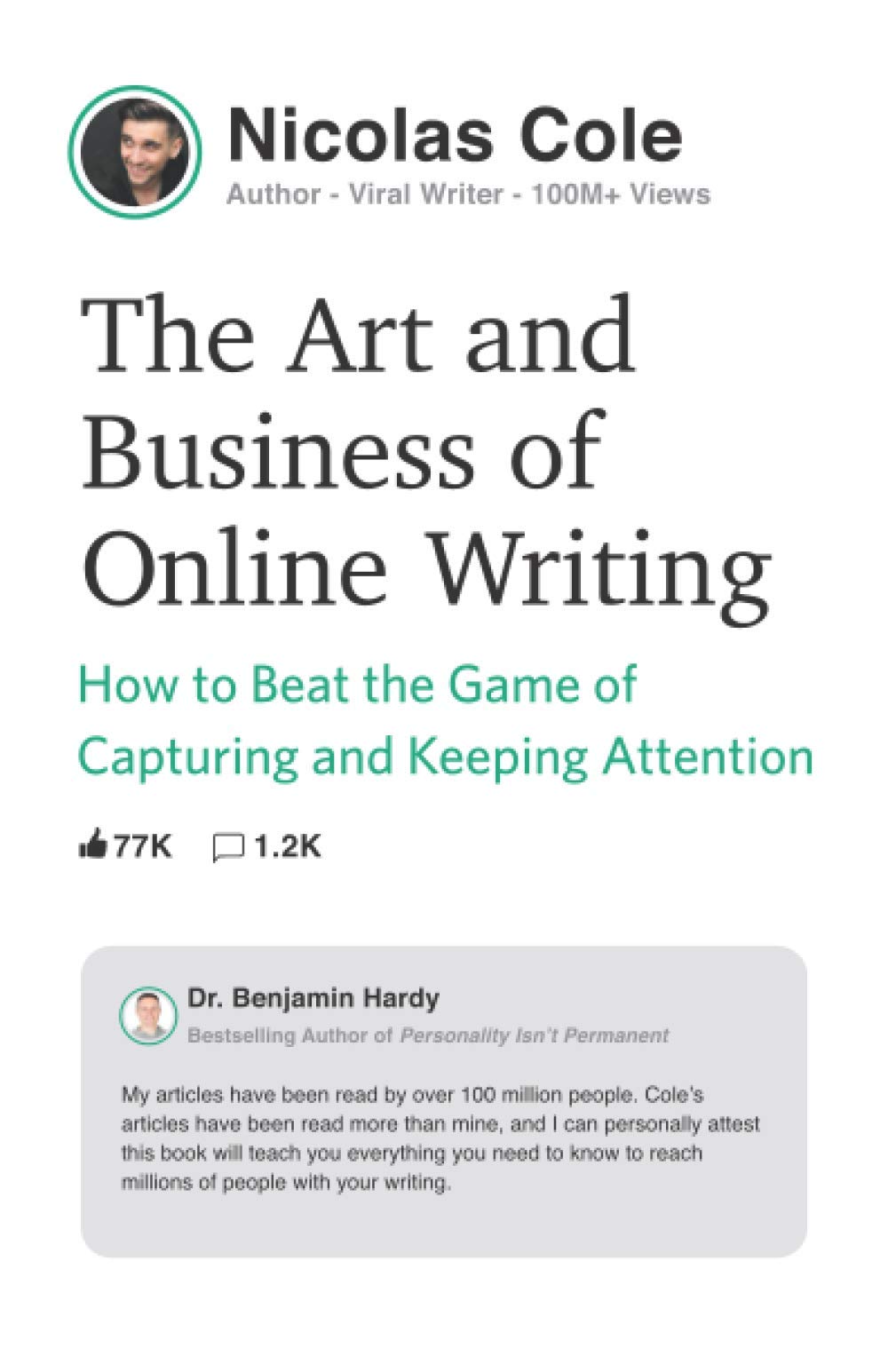
Notes on
The Art and Business of Online Writing
by Nicolas Cole
• 3 min read
- Tell stories about your own life in your writing.
- Use data to inform your writing.
- Create just as much or more than you consume
Your category
You need to be specific, especially when starting. People need to know which box to put you in. Specific writing also resonates more.
You need to know which category you are in.
You have to find your writing style. It’s balanced between Education and Entertainment (or on the far edges).
Being unique means to, in your category, have a different style than others.
The most successful writers created their own category.
Same for almost any endeavor.
Who came before Joe Rogan? Nobody. He invented the category “Joe Rogan”.
How do you create an entirely new category for yourself? Mix and match genre, audience, and style.
You can write what you want, but make sure you follow the data
You can identify a few areas you write about. Then gather data about those areas. You could just follow the data—write about what others really engage with.
But that might not be what you’re passionate about. For this, you can do both. You write about what others want to hear, and leverage that to write about what you want.
Study the greats
You have to study those at the top of the ladder in the areas you write about. What are they doing? Do that. Even better, figure out why they do it.
Content buckets
Author recommends having three content buckets (categories you write for basically):
- General audience, which is going as broad as you can, but angling everything through your own lens.
- Niche audience, which is something that’s ultra niche to your expertise.
- company/industry audience, which is where you write about the industry you’re in.
What to do once you’ve written a lot and gathered lots of data
Once you’ve written a lot and gathered a lot of data, you’d want to start creating massive pillar pieces. These are comprehensive pieces on topics you know your audience wants.
You link to these when you speak about the topic. They should be ultra-valuable.. and free.
You can also later turn this piece into a downloadable Ebook or similar so you can capture emails addresses.
Give away 99% of your best stuff
Simply give it away. Of course, this also means that you should monetize the last 1%. The is the extreme version of The Pareto Principle: this last 1% should be just as valuable, if not more, than the remaining 99%.
Making money online
Don’t even think about making money online before you’re big. Before you regularly write in public. Before you know what you write about. Before you’re well positioned.
You can, but don’t.
Liked these notes? Join the newsletter.
Get notified whenever I post new notes.